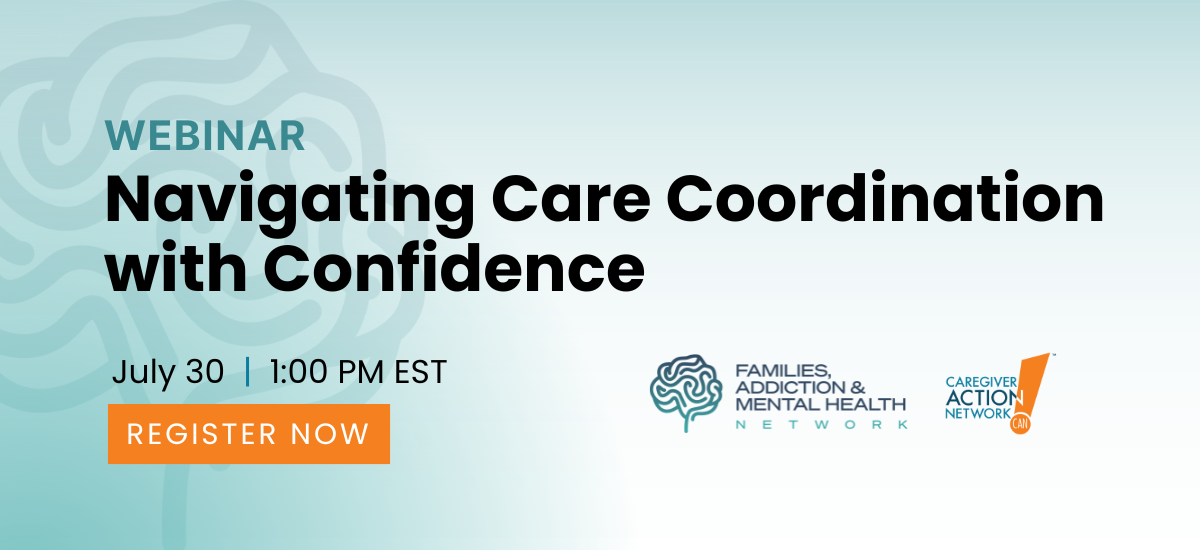Caregivers and Depression
Caregivers and Depression

“Life feels so heavy. It’s as if there is a gray cloud that hovers over everything I do.”
“Decision-making has become so frightening for me. I think I’m losing my mind.”
“I wish I could sleep forever.”
If you recognize these feelings in yourself and feel this way day after day, month after month, even year after year, you may be suffering from something more than a simple case of “the blues.” You may have a mood disorder – and you may be suffering from depression.
Many caregivers, whose lives have been radically and unexpectedly changed by caring for an ill or disabled loved one, slip into depression disorders. Virtually half of the respondents to an NFCA caregiver survey said they had experienced prolonged depression because of their caregiving responsibilities.
That may not make you feel any better, but here’s something that will. Depression is an illness, and it can be cured. You don’t have to go through the rest of your life feeling sad and miserable. Here is a look at the types of depression you may experience as a caregiver, and how you can get help.
Types of Depression
Caregivers are often vulnerable to two primary types of depression: dysthymic disorder and major depression.
- Dysthymic Disorder (DO): This mild yet persistent form of depression includes feelings of sadness, anxiety, and low energy. Symptoms often include difficulty concentrating, changes in appetite, and disturbed sleep. Left untreated, DO can persist for years, affecting every aspect of life.
- Major Depression: A more severe condition, major depression often renders caregivers unable to function. Symptoms such as hopelessness, feelings of worthlessness, and even suicidal thoughts can take a profound toll. Treatment is essential for managing this debilitating condition.
Emotional and Physical Impact
Depression in caregivers often manifests as both emotional and physical symptoms. Many caregivers report headaches, chronic fatigue, and back pain caused by the prolonged stress of caregiving responsibilities. Emotionally, they may experience unrelenting sadness and a sense of loss, which can lead to a reduced quality of life.
Unaddressed caregiver depression can escalate into caregiver burnout, characterized by overwhelming exhaustion and detachment from caregiving tasks. Seeking help early can prevent these outcomes.
Why Caregivers Are Prone to Depression
Caregiving can be isolating. While the focus often remains on the care recipient, caregivers’ emotional needs are overlooked. Many caregivers feel unappreciated, leading to feelings of resentment and sadness. This, combined with the demanding nature of caregiving duties, increases susceptibility to depression.
Statistically, women are more likely to be caregivers and are also more prone to depression, further highlighting the emotional toll of caregiving.
To help gauge what feelings you may be experiencing and if they relate to depression, take this depression self-assessment screening.
Seeking Help for Depression
Recognizing the signs of depression is the first step. Symptoms such as prolonged sadness, changes in appetite or sleep, and feelings of hopelessness should not be ignored. Start by reaching out to a trusted friend or family member, and consider speaking with a healthcare provider.
Professional help is essential. Therapists such as psychiatrists, psychologists, or licensed social workers can guide caregivers toward recovery. Early intervention can prevent depression from worsening.
Finding the Right Treatment
Therapies like cognitive therapy and interpersonal psychotherapy are effective for treating caregiver depression. Cognitive therapy focuses on changing negative thought patterns, while interpersonal psychotherapy addresses social and emotional factors contributing to depression.
For more severe cases, medication may be necessary to balance chemicals in the brain. Consult a psychiatrist for appropriate guidance. Remember, treatment plans can vary, and finding the right combination may take time.
Life After Depression
Recovery from depression is not only possible but can also be transformative. Therapy and self-care can help caregivers rediscover a sense of purpose and joy. Many find that overcoming depression strengthens their resilience and empathy.
If you are struggling, know that help is available, and a fulfilling life beyond depression is within reach. Caregiving is a journey, and maintaining your mental health is essential for providing the best care for your loved one.




